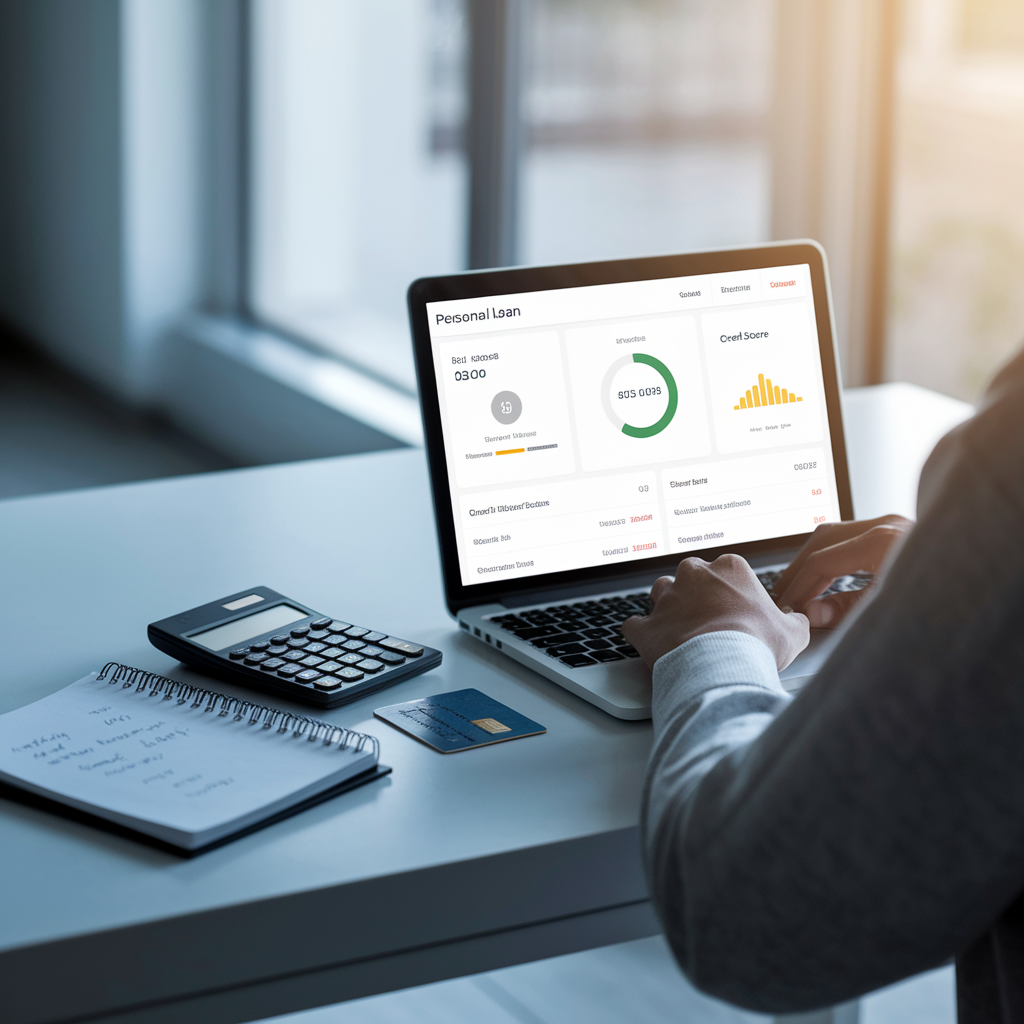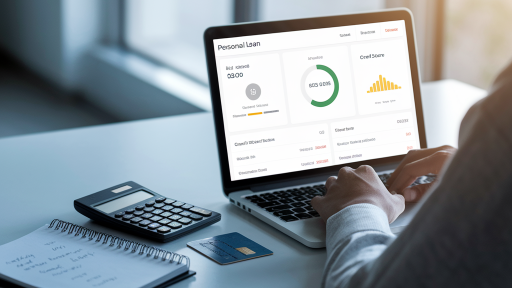Navigating the world of finance can often feel like trying to solve a complex puzzle. When a large expense appears on the horizon, whether it’s an exciting home renovation or an unexpected medical bill, a personal loan can seem like the perfect missing piece. It offers a straightforward way to get a lump sum of cash when you need it most.
But like any significant financial decision, taking out a personal loan isn’t something to be done lightly. While it can be an incredibly useful tool, it also comes with responsibilities and potential downsides. Understanding the full picture—both the shiny benefits and the potential pitfalls—is crucial before you sign on the dotted line. This guide will break down everything you need to know.
Understanding the Basics: What Exactly is a Personal Loan?
Before diving into the pros and cons, let’s clarify what a personal loan is. At its core, a personal loan is an installment loan. This means you borrow a fixed amount of money from a lender (like a bank, credit union, or online lender) and agree to pay it back over a set period, known as the “term.”
These repayments are made in fixed monthly installments that include both a portion of the principal (the original amount borrowed) and interest. Most personal loans are “unsecured,” which means you don’t have to put up any collateral, like your car or house, to get approved. The lender’s decision is based primarily on your creditworthiness, including your credit score and income.
The Advantages: Unpacking the Pros of a Personal Loan
Personal loans have become a popular financing option for a reason. They offer several distinct advantages that can make them an ideal choice in the right circumstances.
Unmatched Flexibility in Use
One of the most significant benefits of a personal loan is its versatility. Unlike an auto loan, which must be used to buy a car, or a mortgage for a house, the funds from a personal loan can typically be used for almost anything. Lenders rarely restrict how you spend the money. This flexibility makes them suitable for a wide range of needs, including:
- Consolidating high-interest credit card debt
- Financing a home improvement project
- Paying for a wedding or other major life event
- Covering unexpected medical or dental bills
- Funding a large, one-time purchase
Predictable, Fixed Monthly Payments
Most personal loans come with a fixed interest rate. This means your interest rate, and therefore your monthly payment, will remain the same for the entire life of the loan. This predictability is a huge advantage for budgeting. You know exactly how much you need to pay each month, which makes managing your finances simpler and less stressful compared to the fluctuating payments of a variable-rate loan or credit card.
Potentially Lower Interest Rates
While not guaranteed, personal loans often carry lower interest rates than credit cards. As of late 2023, the average credit card interest rate hovered near record highs, often exceeding 20%. In contrast, a borrower with a good credit score could secure a personal loan with a single-digit interest rate. This difference can save you thousands of dollars in interest charges over the life of the loan, especially if you’re borrowing a substantial amount.
A Powerful Tool for Debt Consolidation
If you’re juggling multiple high-interest debts, such as balances on several credit cards, a personal loan can be a strategic financial move. By taking out a single loan to pay off all your other debts, you consolidate them into one monthly payment. This not only simplifies your finances but, if you secure a lower interest rate, it can also help you pay off your debt faster and for less money.
Opportunity to Build Your Credit History
When used responsibly, a personal loan can help improve your credit score. Making consistent, on-time payments demonstrates to credit bureaus that you are a reliable borrower. Furthermore, adding an installment loan to your credit file can improve your “credit mix,” which accounts for about 10% of your FICO score. A healthy mix of different types of credit (like installment loans and revolving credit) is viewed favorably.
The Disadvantages: Weighing the Cons of a Personal Loan
Despite their benefits, personal loans are not without their risks and drawbacks. It’s essential to consider these potential negatives before committing.
The Unavoidable Cost of Interest
Borrowing money is never free. The interest you pay is the cost of the loan. Even with a competitive rate, this can add a significant amount to the total cost of your original expense. For example, a $15,000 loan over 5 years at a 10% APR will cost you over $4,000 in interest alone. It’s crucial to calculate the total repayment amount to see if the loan is truly worth it.
Watch Out for Fees and Penalties
Interest isn’t the only cost. Many personal loans come with additional fees that can increase the overall expense. Common fees include:
- Origination Fees: A one-time fee deducted from the loan proceeds to cover the cost of processing the loan. It can range from 1% to 8% of the total loan amount.
- Late Payment Fees: A penalty charged if you miss a payment deadline.
- Prepayment Penalties: Some lenders charge a fee if you pay off the loan early, as this means they lose out on future interest payments. Always check for this before accepting a loan.
The Risk of Increasing Your Debt Burden
A personal loan is new debt. While it can be used to manage existing debt, it can also become an additional financial burden if not managed carefully. If you use a loan to consolidate credit card debt but then continue to spend on those same credit cards, you can easily find yourself in a much worse financial position than when you started.
Potential Negative Impact on Your Credit Score
While a loan can help your credit in the long run, it can have a negative short-term impact. When you apply, the lender will perform a “hard inquiry” on your credit report, which can temporarily lower your score by a few points. Additionally, taking on a new, large loan will increase your total debt amount and can lower the average age of your credit accounts, both of which can also cause a temporary dip in your score.
Personal Loan Pros and Cons: A Quick Comparison
To help visualize the key points, here’s a side-by-side comparison:
| Pros (The Advantages) | Cons (The Disadvantages) |
|---|---|
| Highly flexible; can be used for almost any purpose. | Interest costs can significantly increase the total amount you repay. |
| Fixed interest rates lead to predictable monthly payments. | Potential for origination fees, late fees, and prepayment penalties. |
| Often have lower interest rates compared to credit cards. | Adds to your overall debt load; requires disciplined repayment. |
| Excellent tool for simplifying finances through debt consolidation. | Can cause a temporary dip in your credit score upon application. |
| Responsible use can help build or improve your credit history. | Strict qualification requirements based on credit and income. |
So, When is a Personal Loan a Good Idea?
A personal loan is a good idea when it serves as a strategic solution to a financial problem or need, especially when it saves you money or helps you manage an essential expense.
Consolidating High-Interest Debt
This is one of the most common and smartest uses. If you can secure a personal loan with a 9% APR to pay off credit card debt that’s costing you 22% APR, you are making a clear, mathematically sound decision that will save you money and help you become debt-free faster.
Financing a Necessary Home Improvement Project
If you need to replace a failing roof or upgrade your HVAC system, a personal loan can be a sensible way to finance it. These projects can protect or even increase the value of your home, making the loan an investment in your property.
Covering Unexpected Medical Emergencies
A sudden medical or dental bill can be financially crippling. A personal loan can provide immediate funds to cover these costs, often at a more favorable interest rate than a medical financing plan or a credit card.
Funding a Major Life Event
For planned, significant events like a wedding, a personal loan can help manage costs without draining your savings. The key is to borrow a sensible amount that you can comfortably repay within your budget.
When Should You Avoid a Personal Loan?
Conversely, there are several scenarios where taking on this type of debt is a poor financial choice.
- For Non-Essential or Luxury Spending: Financing a vacation, a shopping spree, or a fancy gadget with a loan is a dangerous path. If you can’t afford it with cash, you shouldn’t go into debt for it.
- To Fund Investments or Speculative Ventures: Using borrowed money to invest in the stock market or a risky business is extremely hazardous. If the investment fails, you’re still on the hook for the loan payments.
- If You Don’t Have a Stable Income: If your job is insecure or your income is unpredictable, taking on a fixed monthly payment is a major risk. A missed payment can damage your credit and lead to a cycle of debt.
- When a Better Alternative Exists: Before jumping to a loan, explore other options. Could you use a 0% introductory APR credit card? Or is it possible to save up for the purchase over a few months?
Exploring Smart Alternatives to Personal Loans
A personal loan isn’t your only option. Depending on your situation, one of these alternatives might be a better fit:
- 0% APR Credit Cards: For smaller expenses you can pay off within 12-21 months, a promotional 0% APR credit card can be a great choice. You pay no interest as long as you clear the balance before the introductory period ends.
- Home Equity Line of Credit (HELOC): If you are a homeowner with significant equity, a HELOC may offer a much lower interest rate. However, it’s a secured loan, meaning your home is the collateral.
- Saving Up: The oldest and safest method. For non-urgent purchases, creating a savings plan and paying with cash is always the most financially sound choice, as it costs you nothing in interest or fees.
Key Factors to Consider Before You Apply
If you’ve weighed the options and decided to move forward, evaluate these factors carefully.
Your Credit Score and History
Your credit score is the single most important factor in determining your eligibility and interest rate. Check your score beforehand. Generally, you’ll need a score in the mid-600s or higher to qualify, with the best rates reserved for those with scores above 720. A strong credit history, as detailed by credit bureaus like Experian, will significantly improve your chances.
Debt-to-Income (DTI) Ratio
Lenders will look at your DTI ratio—your total monthly debt payments divided by your gross monthly income—to assess your ability to handle a new payment. Most lenders prefer a DTI ratio below 43%, and a lower ratio will get you better terms.
Interest Rates, APR, and Fees
Don’t just look at the interest rate. Compare the Annual Percentage Rate (APR), which includes the interest rate plus any fees (like origination fees), to get a true sense of the loan’s cost. Shop around and get pre-qualified with multiple lenders to compare offers.
The Loan Term
The loan term is how long you have to repay the loan. A longer term (e.g., 5 years) will result in lower monthly payments but a higher total interest cost. A shorter term (e.g., 3 years) means higher monthly payments but you’ll pay less in interest overall. Choose a term that balances a manageable monthly payment with the lowest possible total cost.
Final Verdict: Is a Personal Loan the Right Choice for You?
A personal loan is neither inherently “good” nor “bad”—it is a financial tool. Its value depends entirely on how and why it’s used. When leveraged strategically to consolidate high-interest debt, fund a necessary and valuable project, or manage an emergency, it can be an incredibly smart and beneficial move. It provides structure, predictability, and often, a lower cost of borrowing.
However, when used to fund an unsustainable lifestyle, for discretionary spending, or without a clear repayment plan, it can quickly become a heavy burden that harms your financial health. The most important step is to be honest with yourself about your needs, your budget, and your discipline. Before making a decision, it’s vital to fully understand the pros and cons of a personal loan and how they apply to your unique financial situation. By doing your homework and borrowing responsibly, you can ensure it serves as a stepping stone, not a stumbling block, on your financial journey.





